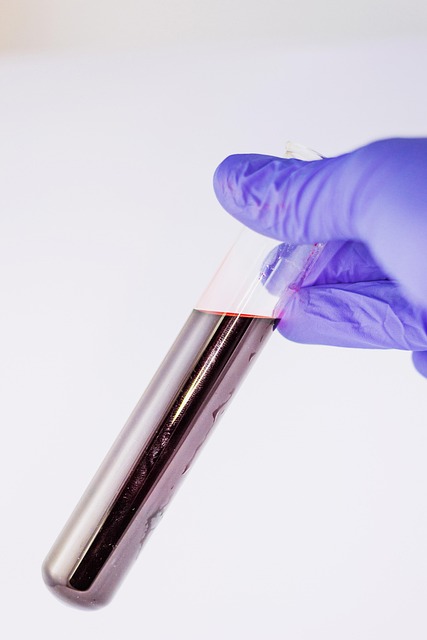Hormone analysis through General Health Blood Tests in the UK is a vital tool for assessing and treating reproductive health issues, including infertility, irregular periods, and hormonal imbalances. These tests measure key hormones to evaluate ovulatory function, egg quality, and overall fertility. Results guide personalised treatments, such as lifestyle changes, medication, or IVF. Interpreting test outcomes is crucial for identifying imbalances like elevated FSH or low estrogen, prompting further actions and regular follow-ups to monitor progress.
“Unsure about your reproductive health? Hormone analysis through a General Health Blood Test in the UK could be the first step towards understanding and managing potential issues. This comprehensive guide delves into the process, covering what to expect from a typical General Health Blood Test in the UK and how results can offer insights into your reproductive well-being.
Learn about the key hormones tested and what they indicate, empowering you with knowledge to take charge of your fertility.”
- Understanding Hormone Analysis for Reproductive Health in the UK
- What is Included in a General Health Blood Test?
- Interpreting Results and Next Steps After a Hormone Analysis
Understanding Hormone Analysis for Reproductive Health in the UK
Hormone analysis plays a pivotal role in understanding and addressing reproductive health issues in the UK. This non-invasive procedure involves assessing various hormones in the blood to gain insights into an individual’s reproductive system. It serves as a comprehensive tool for both diagnostic and monitoring purposes, especially in cases of infertility, irregular menstrual cycles, and hormonal imbalances.
In the UK, General Health Blood Tests are readily available and often recommended as part of routine healthcare checks. These tests measure hormone levels such as Follicle-Stimulating Hormone (FSH), Luteinizing Hormone (LH), Estradiol (E2), Progesterone, and Testosterone, among others. The results provide valuable information about ovulatory function, egg quality, and overall reproductive health, guiding personalised treatments and interventions to enhance fertility and overall well-being.
What is Included in a General Health Blood Test?
A General Health Blood Test in the UK typically includes a comprehensive range of measurements designed to assess overall health and identify potential issues early on. This routine check-up provides valuable insights into various physiological systems within the body. Key components often found in such tests encompass complete blood count (CBC), assessing red and white blood cells, platelets, and providing information on inflammation; full lipid profile, monitoring cholesterol levels and fats to gauge cardiovascular health; kidney function tests, which check for creatinine and urea to ensure proper kidney functioning; and liver enzymes, helping detect any potential liver issues.
Hormone analysis is also a crucial element of these tests, especially when investigating reproductive problems. By measuring hormone levels like Follicle-Stimulating Hormone (FSH), Luteinizing Hormone (LH), Estradiol, and Testosterone, healthcare professionals can gain insights into the balance and functionality of endocrine systems, which play a vital role in fertility and overall reproductive health. This component is particularly relevant for individuals experiencing irregular menstrual cycles, infertility, or other reproductive concerns.
Interpreting Results and Next Steps After a Hormone Analysis
After undergoing a hormone analysis for reproductive issues, interpreting the results is a crucial step. This process involves comparing your hormone levels to established ranges, often using reference values specific to your age group and gender. A general health blood test UK clinics typically provide can offer insights into potential imbalances or abnormalities. For instance, elevated levels of follicle-stimulating hormone (FSH) might suggest decreasing ovarian reserve, while low estrogen or progesterone could point to ovulatory disorders.
Understanding the results guides the next steps. If significant imbalances are detected, your healthcare provider may recommend further investigations, such as additional blood tests, ultrasound scans, or other specialized assessments. Treatment options can then be tailored accordingly. This might include lifestyle modifications, medication, or assisted reproductive technologies (ART) like in vitro fertilization (IVF). Regular follow-up testing is often essential to monitor progress and adjust treatments as needed.
Hormone analysis plays a crucial role in diagnosing and managing reproductive issues in the UK. By incorporating a comprehensive General Health Blood Test UK, healthcare professionals can gain valuable insights into hormone levels, enabling them to offer tailored treatments. Understanding the results of this test is essential for navigating the next steps towards optimal reproductive health. This process empowers individuals to take charge of their fertility and embark on a journey towards achieving their family goals.
